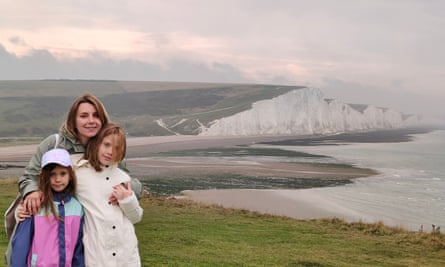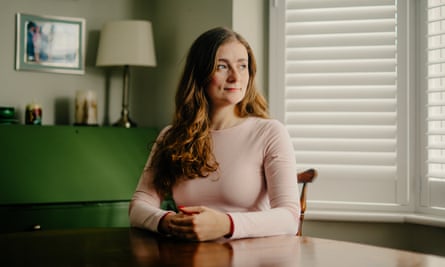‘To see a dentist is like getting to meet the king’: Ukrainian refugees on two years in the UK
When Svitlana Tselishcheva and her two daughters fled to the UK from Chernihiv, Ukraine, there were several strands of British life to adapt to as refugees.
This includes, as she described, adjusting to the wet weather, their new surroundings in Preston, Lancashire, and British manners.
“I appreciate the tolerance and politeness of British people,” she said. “They’re very supportive … and this is so important and so valuable for me to know, as a refugee.”

Yet, there was one relatable aspect of life in the UK that proved surprisingly challenging – getting a doctor’s appointment.
She said: “I expected that reaching the healthcare system would be easier here. Sometimes it’s not very easy to get a doctor, to book an appointment you need to wait for months.
“My daughters have got some issues with their health and we tried to book the appointment a year ago and we’re still waiting. So this is disappointing because you want to solve the problem and you can’t.”
Russia launched an invasion of Ukraine two years ago, uprooting the lives of more than 6 million people who fled the country.
Tselishcheva, an English language lecturer, and her family are some of the more than 200,000 people who fled to the UK, many via the Homes for Ukraine scheme which allowed British families to host Ukrainian arrivals.
The British welcome extended to Tselishcheva’s daughters, who had a “heartwarming” introduction into their new school, with their classmates writing letters to them in Ukrainian.
“They were surrounded by their classmates, they were always hugged, they were always cared for … It was so heartwarming,” she said.
Iryna Chupylka, 33, moved in with a host family in Hampshire last year after witnessing the horrors of the war in Kyiv.
She said: “I tell people that I got here on Valentine’s Day and fell in love with this country because I’ve never been here before.” Chupylka described her host family as “exceptional”.

Tselishcheva added: “We were very lucky to have probably one of the best hosts possible because we call him our angel, [he] is an absolutely adorable person.
“He helps us with the documents, he helps us apply for jobs … We are blessed and lucky to have him.”
Others have not been so lucky. Councils across the UK have expressed concerns regarding the growing number of Ukrainian refugees facing homelessness in the UK.
The Local Government Association said this was mainly driven by the breakdown of sponsorship arrangements.
Like Tselishcheva, Chupylka said it was “easier to access” medical support in Ukraine and even had dental treatment in the country while on a trip to visit her parents.
“Being able to call your doctor, your dentist and say: ‘You see I don’t feel very well. I don’t feel comfortable’ and come up for another appointment. I was told it’s not [something] anyone can do here,” she said.
Tselishcheva added: “Dentists, it seems to me this is a real problem, not only for refugees but for natives as well. To get the dentist is almost [like getting] to meet the king … It’s very difficult and financially demanding. It’s quite expensive.”
Chupylka, who works as a volunteer with community groups, said she hoped to return to Ukraine when the conflict was over to “rebuild” the country.
She said: “Living here for a year, I still can’t afford, can’t find a proper job, I can’t afford a car, I can’t afford rent. I 100% rely on my host family and, despite the fact they are nice people and very kind, I would be very happy to be independent.”
For Tselishcheva’s family, the future is also uncertain. “We will take any chance to stay here, to be safe, especially to keep our children safe …
“What I’m doing now, I am enjoying. I love people. I love my colleagues, and I would miss them if I had to leave them.”
Tselishcheva and Chupylka are two of the almost 500 Ukrainian refugees being supported by the International Rescue Committee.